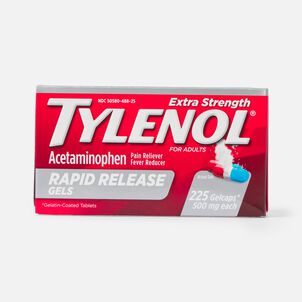What special needs tests are covered by FSAs?

Many people don't realize just how many expenses are FSA-eligible. Unfortunately, figuring out exactly what's covered can be confusing, especially when it comes to less routine appointments like testing for learning disabilities.
The process of diagnosing and treating a learning disability can be a long and stressful process, with medical expenses that can add up quickly. Using your tax-free dollars is a great way to help lift some of the financial strain.
Here's what you need to know about how your FSA can help you and your family when testing and treatment is needed for a learning disability.
Testing for learning disabilities
The term learning disability refers to a fairly wide variety of conditions including dyslexia, dyscalculia, blindness, hearing impairments, specific congenital disabilities, autism, and nervous system disorders. Testing for many of these conditions is expensive, and it often requires more than one test for a specialist to make a correct diagnosis.
Unfortunately, your health insurance will probably only cover a fraction of these costs. The good news is that most tests that diagnose learning disabilities are considered eligible expenses.
For testing to be considered an eligible expense, it must be recommended by a doctor. And in most cases, your administrator will require a letter of medical necessity for reimbursement. This letter must detail why the testing is necessary and how it will benefit your child, as well as how long treatment is expected to last.
Treatment for learning disabilities
Treatment types will vary widely depending on the type of learning disability. So, a child with visual impairments will need a tutor to teach them braille, while a child who is deaf will need to learn lip reading and sign language.
As long as a doctor recommends therapy, education or a combination of both to help your child overcome their learning disability, these are considered eligible expenses.
Other FSA-eligible treatments for learning disabilities include:
- Speech therapy
- Multimodal teaching
- Occupational therapy
- Physical therapy
- Assistive technology which can include items like computers, typing telephones, and magnifiers
- Reading or mathematics tutoring
Your child's doctor may recommend more extensive treatment, like attending a school that specializes in helping children overcome learning disabilities. As long as a doctor prescribes this course of action, tuition and other associated expenses like meals and boarding are eligible for FSA reimbursement.
If your child wants to participate in extracurricular activities that aren't part of the recommended treatment, however, you'll have to cover these expenses out-of-pocket.
If you need to travel to see a specialist for a diagnosis or treatment, your can even use your FSA to help cover those costs. Expenses like gas, tolls, parking, and public transportation fares are all eligible for reimbursement, provided you get a doctor's letter.
What isn't eligible?
While you can get your child tutoring without an official diagnosis to help them overcome difficulties in school, without a doctor's letter, these costs are not FSA-eligible. And if your pediatrician ever decides that treatment is no longer necessary, yet you feel it's best for your child to keep seeing a specialist for their condition, any new expenses you incur will not be eligible for reimbursement.
-
Thank you for visiting the FSA Store Learning Center. Don’t forget to follow us for more helpful tips on Facebook, Instagram, and Twitter.


















